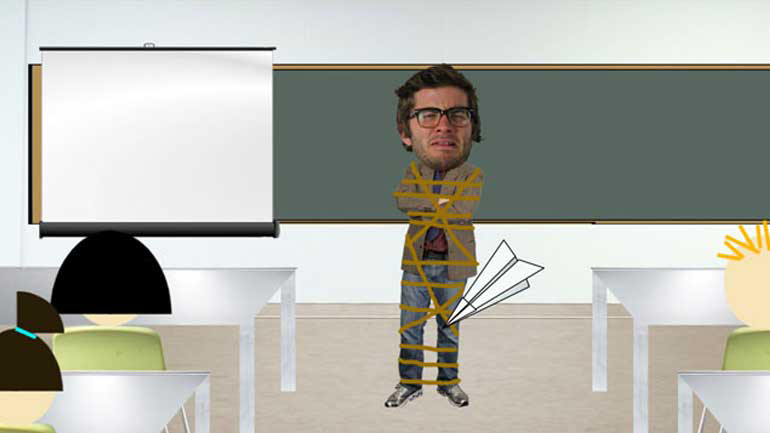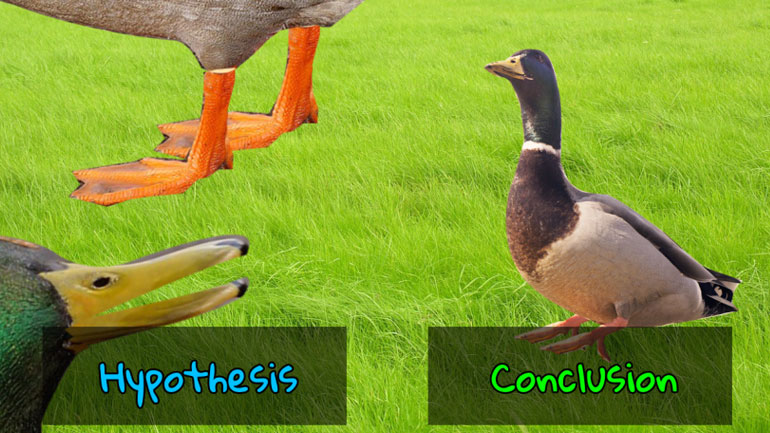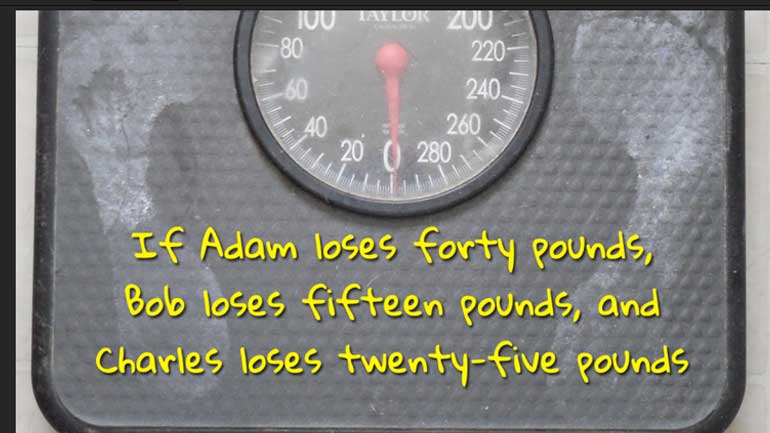ShmoopTube
Where Monty Python meets your 10th grade teacher.
Search Thousands of Shmoop Videos
Inductive and deductive reasoning Videos 6 videos
Mathematical Reasoning Drill 1 Problem 4. What other information is needed?
Mathematical Reasoning Drill 1 Problem 5. What other information is needed?
CAHSEE Math Mathematical Reasoning Drill 2, Problem 1. Which of the following expressions has a negative value?
CAHSEE Math 6.2 Mathematical Reasoning 188 Views
Share It!
Description:
Mathematical Reasoning Drill 6, Problem 2. The arithmetic operation used to find the distance that Iron Man traveled during this time can also be used to solve which of the following problems?
Transcript
- 00:03
When I shmoop, you shmoop, we shmoop…
- 00:07
Iron Man experienced a glitch with his new suit, and it took him a while to find the “stop” button.
- 00:13
In the meantime, he flew for 2.5 hours at an average speed of 325 mph.
- 00:22
The arithmetic operation used to find the distance that Iron Man traveled during this
- 00:26
time can also be used to solve which of the following problems?
Full Transcript
- 00:30
And here are the potential answers...
- 00:35
So… This question is really about leverage –
- 00:37
it’s taking a constant and multiplying it by a rate.
- 00:40
If we were to solve the problem at hand, where Iron Man traveled 325 miles in ONE hour…
- 00:45
…we’d multiply that number by 2.5 to find out how far he traveled in 2.5 hours.
- 00:50
So… which one of our choices does the same thing?
- 00:53
To solve A, we’d use real basic addition… so that answer is clearly a decoy.
- 00:58
To solve B, it’s basic subtraction. Also not going to cut the mustard.
- 01:03
What about C? A nickel for each student… five cents times 25…
- 01:08
so we’re looking at multiplication here. Just as we hoped.
- 01:11
We’re guessing choice D will be a dud… and sure enough, we’d need to use division to solve it.
- 01:17
So… C it is.
- 01:18
As in… “Check the User’s Manual.”
Related Videos
CAHSEE Math: Algebra and Functions Drill 5, Problem 3. Solve the equation.
If you already know what a conditional statement is, then you're smarter than you look. And boy do you look smart.
Indirect proofs (or proofs by contradiction) prove their conclusion by showing that the opposite cannot be true. You can use this in math and in ar...
Formal proofs present the oh-so-mathematical evidence in two columns: one for the statement they are claiming is true, and the other for the reason...










